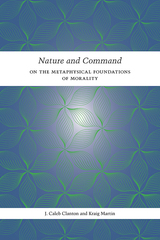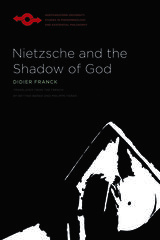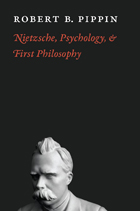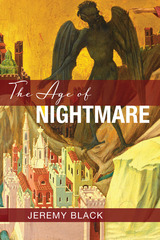4 start with N start with N

Since at least the time of Plato, religious explanations of the metaphysical foundations of morality have typically fallen into one of two camps: natural law theory, according to which morality is fundamentally explained by facts about human nature—facts that God is responsible for—and divine command theory, which holds that moral obligations arise directly from God’s commands or some other prescriptive act of the divine will. J. Caleb Clanton and Kraig Martin offer an accessible analysis of these traditional views, reconstruct the various arguments for and against them, and offer an extended consideration of the historical emergence of the divide between these positions within the Christian tradition. Nature and Command goes on to develop and defend a theory that combines these two views—a metaethical approach that has not yet received the scholarly attention it deserves.
Along the way, the authors make use of underexplored theological resources drawn from the Stone-Campbell movement, a nineteenth-century restoration movement that culminated in one of the largest Protestant groups in America by the dawn of the twentieth century. Nature and Command summons the resources of this particular Christian heritage—its first principles, call for unity, and ecumenism—to solve one of the great dilemmas of moral philosophy and theology dating back to Plato’s Euthyphro.
This historically aware, argumentatively rigorous, and highly readable volume will serve as a valuable resource for moral philosophy and ethics, as well as for mining the Stone-Campbell Restoration tradition for historical and theological insights.


Bergo and Farah’s clear translation introduces this work to an English-speaking audience for the first time.

Friedrich Nietzsche is one of the most elusive thinkers in the philosophical tradition. His highly unusual style and insistence on what remains hidden or unsaid in his writing make pinning him to a particular position tricky. Nonetheless, certain readings of his work have become standard and influential. In this major new interpretation of Nietzsche’s work, Robert B. Pippin challenges various traditional views of Nietzsche, taking him at his word when he says that his writing can best be understood as a kind of psychology.
Pippin traces this idea of Nietzsche as a psychologist to his admiration for the French moralists: La Rochefoucauld, Pascal, Stendhal, and especially Montaigne. In distinction from philosophers, Pippin shows, these writers avoided grand metaphysical theories in favor of reflections on life as lived and experienced. Aligning himself with this project, Nietzsche sought to make psychology “the queen of the sciences” and the “path to the fundamental problems.” Pippin contends that Nietzsche’s singular prose was an essential part of this goal, and so he organizes the book around four of Nietzsche’s most important images and metaphors: that truth could be a woman, that a science could be gay, that God could have died, and that an agent is as much one with his act as lightning is with its flash.
Expanded from a series of lectures Pippin delivered at the Collège de France, Nietzsche, Psychology, and First Philosophy offers a brilliant, novel, and accessible reading of this seminal thinker.
READERS
Browse our collection.
PUBLISHERS
See BiblioVault's publisher services.
STUDENT SERVICES
Files for college accessibility offices.
UChicago Accessibility Resources
home | accessibility | search | about | contact us
BiblioVault ® 2001 - 2024
The University of Chicago Press









